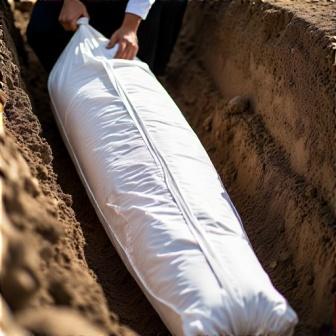Sadaqah, voluntary charity given for Allah’s sake, is a cornerstone of Islamic practice, reflecting generosity and faith. Unlike Zakah, which is obligatory, Sadaqah can be given anytime, in any amount, by anyone. The Holy Quran and the Sunnah of Prophet Muhammad (PBUH) highlight its profound rewards, both in this world and the hereafter. This article explores seven key benefits of giving Sadaqah every day, supported by Quranic verses and authentic Hadith, offering clear insights for Muslims and non-Muslims, including non-native English speakers. Whether you seek spiritual growth or wish to understand Islamic values, these benefits will inspire you to embrace daily Sadaqah.
Understanding Sadaqah: The Act of Giving
What Is Sadaqah?
Sadaqah means voluntary charity, including money, food, or even a kind act like a smile. It stems from sincerity and a desire to please Allah. The Quran praises giving:
Surah Al-Baqarah, Ayah 262
ٱلَّذِینَ یُنفِقُونَ أَمۡوَ ٰلَهُمۡ فِی سَبِیلِ ٱللَّهِ ثُمَّ لَا یُتۡبِعُونَ مَاۤ أَنفَقُوا۟ مَنࣰّا وَلَاۤ أَذࣰى لَّهُمۡ أَجۡرُهُمۡ عِندَ رَبِّهِمۡ وَلَا خَوۡفٌ عَلَیۡهِمۡ وَلَا هُمۡ یَحۡزَنُونَ
Those who spend their wealth in the Cause of Allah, and do not follow up their gifts with reminders of their generosity or with injury, their reward is with their Lord. On them shall be no fear, nor shall they grieve.
[2:262]
This verse emphasizes selfless giving, the essence of Sadaqah.
Why Daily Sadaqah Matters
The Prophet (PBUH) said, “Every day two angels come down from Heaven. One says, ‘O Allah! Compensate every person who spends in Your cause,’ and the other says, ‘O Allah! Destroy every miser’” (Sahih Bukhari, Hadith 1442). This Hadith shows the daily blessings of giving Sadaqah.
Benefit 1: Earning Allah’s Reward and Forgiveness
A Path to Jannah
Daily Sadaqah secures immense rewards and forgiveness. The Quran says:
“Indeed, the men who practice charity and the women who practice charity… for them Allah has prepared forgiveness and a great reward.”
Surah Al-Ahzab, Ayah 35
إِنَّ ٱلۡمُسۡلِمِینَ وَٱلۡمُسۡلِمَـٰتِ وَٱلۡمُؤۡمِنِینَ وَٱلۡمُؤۡمِنَـٰتِ وَٱلۡقَـٰنِتِینَ وَٱلۡقَـٰنِتَـٰتِ وَٱلصَّـٰدِقِینَ وَٱلصَّـٰدِقَـٰتِ وَٱلصَّـٰبِرِینَ وَٱلصَّـٰبِرَ ٰتِ وَٱلۡخَـٰشِعِینَ وَٱلۡخَـٰشِعَـٰتِ وَٱلۡمُتَصَدِّقِینَ وَٱلۡمُتَصَدِّقَـٰتِ وَٱلصَّـٰۤىِٕمِینَ وَٱلصَّـٰۤىِٕمَـٰتِ وَٱلۡحَـٰفِظِینَ فُرُوجَهُمۡ وَٱلۡحَـٰفِظَـٰتِ وَٱلذَّ ٰكِرِینَ ٱللَّهَ كَثِیرࣰا وَٱلذَّ ٰكِرَ ٰتِ أَعَدَّ ٱللَّهُ لَهُم مَّغۡفِرَةࣰ وَأَجۡرًا عَظِیمࣰا
Verily, the Muslims (those who submit to Allah in Islam) men and women, the believers men and women (who believe in Islamic Monotheism), the men and the women who are obedient (to Allah), the men and women who are truthful (in their speech and deeds), the men and the women who are patient (in performing all the duties which Allah has ordered and in abstaining from all that Allah has forbidden), the men and the women who are humble (before their Lord Allah), the men and the women who give Sadaqat (i.e. Zakat, and alms, etc.), the men and the women who observe Saum (fast) (the obligatory fasting during the month of Ramadan, and the optional Nawafil fasting), the men and the women who guard their chastity (from illegal sexual acts) and the men and the women who remember Allah much with their hearts and tongues (while sitting, standing, lying, etc. for more than 300 times extra over the remembrance of Allah during the five compulsory congregational prayers) or praying extra additional Nawafil prayers of night in the last part of night, etc.) Allah has prepared for them forgiveness and a great reward (i.e. Paradise).
[33:35]
This verse promises divine forgiveness for charitable acts.
Practical Example
A teacher donating a small amount daily to a mosque feels spiritually fulfilled, trusting in Allah’s promise of reward.
Benefit 2: Protection from Calamities
A Shield Against Harm
Sadaqah acts as a safeguard against trials. The Prophet (PBUH) said, “Give charity without delay, for it stands in the way of calamity” (Sunan Tirmidhi, Hadith 1887).
Quranic Support
The Quran encourages giving to avert hardship:
Surah Al-Baqarah, Ayah 261
مَّثَلُ ٱلَّذِینَ یُنفِقُونَ أَمۡوَ ٰلَهُمۡ فِی سَبِیلِ ٱللَّهِ كَمَثَلِ حَبَّةٍ أَنۢبَتَتۡ سَبۡعَ سَنَابِلَ فِی كُلِّ سُنۢبُلَةࣲ مِّا۟ئَةُ حَبَّةࣲۗ وَٱللَّهُ یُضَـٰعِفُ لِمَن یَشَاۤءُۚ وَٱللَّهُ وَ ٰسِعٌ عَلِیمٌ
The likeness of those who spend their wealth in the Way of Allah, is as the likeness of a grain (of corn); it grows seven ears, and each ear has a hundred grains. Allah gives manifold increase to whom He pleases. And Allah is All-Sufficient for His creatures’ needs, All-Knower.
[2:261]
This verse likens charity to a seed, multiplying blessings and protection.
Example
A family giving daily Sadaqah, like food to the needy, might find relief during a financial crisis, as Allah protects them.
Benefit 3: Increased Sustenance and Barakah
Blessings in Wealth
Daily Sadaqah invites Barakah (blessings) and provision. The Prophet (PBUH) said, “Charity does not decrease wealth” (Sahih Muslim, Hadith 2588).
Real-Life Example
A shopkeeper donating a portion of daily earnings notices increased customers, experiencing Allah’s promise of abundance.
Historical Context
Abu Bakr (RA) gave generously, yet his wealth grew, showing Sadaqah’s multiplying effect (Sahih Bukhari, Hadith 1390).
Benefit 4: Purification of the Heart
Cleansing from Sins
Sadaqah purifies the heart from greed and pride. The Quran says:
“Take, [O Muhammad], from their wealth a charity by which you purify them and cause them increase…”
Surah At-Tawbah, Ayah 103
خُذۡ مِنۡ أَمۡوَ ٰلِهِمۡ صَدَقَةࣰ تُطَهِّرُهُمۡ وَتُزَكِّیهِم بِهَا وَصَلِّ عَلَیۡهِمۡۖ إِنَّ صَلَوٰتَكَ سَكَنࣱ لَّهُمۡۗ وَٱللَّهُ سَمِیعٌ عَلِیمٌ
Take Sadaqah (alms) from their wealth in order to purify them and sanctify them with it, and invoke Allah for them. Verily! Your invocations are a source of security for them, and Allah is All-Hearer, All-Knower.
[9:103]
This verse highlights charity’s role in spiritual cleansing.
Practical Example
A student sharing lunch with a classmate as Sadaqah feels humility, softening their heart toward others.
Benefit 5: Strengthening Community Bonds
Fostering Unity
Daily Sadaqah supports the needy, building stronger communities. The Quran encourages helping others:
Surah Al-Baqarah, Ayah 195
وَأَنفِقُوا۟ فِی سَبِیلِ ٱللَّهِ وَلَا تُلۡقُوا۟ بِأَیۡدِیكُمۡ إِلَى ٱلتَّهۡلُكَةِ وَأَحۡسِنُوۤا۟ۚ إِنَّ ٱللَّهَ یُحِبُّ ٱلۡمُحۡسِنِینَ
And spend in the Cause of Allah (i.e. Jihad of all kinds, etc.) and do not throw yourselves into destruction (by not spending your wealth in the Cause of Allah), and do good. Truly, Allah loves Al-Muhsinun (the good-doers).
[2:195]
This verse promotes kindness, fulfilled through Sadaqah.
Example
A neighborhood pooling daily Sadaqah to help a struggling family fosters love and unity, reflecting the Ansar’s generosity in Madinah (Sahih Bukhari, Hadith 3780).
Benefit 6: Shade on the Day of Judgment
Eternal Protection
Sadaqah offers protection on the Day of Judgment. The Prophet (PBUH) said, “The believer’s shade on the Day of Resurrection will be his charity” (Sunan Tirmidhi, Hadith 1925).
Practical Example
A worker giving daily Sadaqah, even a smile, hopes for Allah’s mercy on the Day of Judgment, inspired by this Hadith.
Quranic Insight
The Quran promises reward for good deeds:
Surah Maryam, Ayah 96
إِنَّ ٱلَّذِینَ ءَامَنُوا۟ وَعَمِلُوا۟ ٱلصَّـٰلِحَـٰتِ سَیَجۡعَلُ لَهُمُ ٱلرَّحۡمَـٰنُ وُدࣰّا
Verily, those who believe [in the Oneness of Allah and in His Messenger (Muhammad SAW)] and work deeds of righteousness, the Most Beneficent (Allah) will bestow love for them (in the hearts of the believers).
[19:96]
Benefit 7: Closeness to Allah
Deepening Faith
Daily Sadaqah strengthens one’s bond with Allah. The Prophet (PBUH) said, “Sadaqah is a proof (of faith)” (Sahih Muslim, Hadith 223).
Example
A mother giving daily Sadaqah, like clothes to the poor, feels closer to Allah, her faith growing with each act.
Historical Example
Khadijah (RA) supported the Prophet (PBUH) with her wealth, earning Allah’s pleasure (Sahih Muslim, Hadith 2430).
How to Give Sadaqah Every Day
To reap these benefits, incorporate Sadaqah into daily life:
- Small Acts: Smile at someone or share food (Sahih Muslim, Hadith 2626).
- Monetary Giving: Donate a small amount to charity daily.
- Volunteering: Help at a mosque or food bank.
- Dua for Others: Pray for someone’s well-being as Sadaqah.
- Teach Knowledge: Share a Hadith or Quranic lesson.
Addressing Common Misconceptions
Misconception 1: Sadaqah Requires Wealth
Sadaqah includes non-monetary acts, like a kind word, as the Prophet (PBUH) taught (Sahih Bukhari, Hadith 6021).
Misconception 2: Only Large Donations Count
Even small, consistent Sadaqah is rewarded, as the Prophet (PBUH) said, “The most beloved deeds to Allah are those done consistently, even if small” (Sahih Bukhari, Hadith 6465).
Challenge: Financial Constraints
If money is tight, give time or effort. A student might help a neighbor, fulfilling Sadaqah’s spirit.
Challenge: Lack of Habit
Busy schedules may hinder daily giving. Solution: Set a daily reminder or link Sadaqah to routines, like after Salah.
Conclusion: The Transformative Impact of Daily Sadaqah
Giving Sadaqah every day brings seven profound benefits: earning Allah’s reward, protection from calamities, increased sustenance, heart purification, community strength, shade on Judgment Day, and closeness to Allah. Rooted in the Quran and Hadith, these rewards transform both spiritual and worldly life. From Abu Bakr’s (RA) generosity to modern acts of kindness, Sadaqah’s legacy endures. By making it a daily habit, Muslims can live with faith, generosity, and purpose. Let this guide inspire you to embrace daily Sadaqah in 2025, enriching your life and others’.







